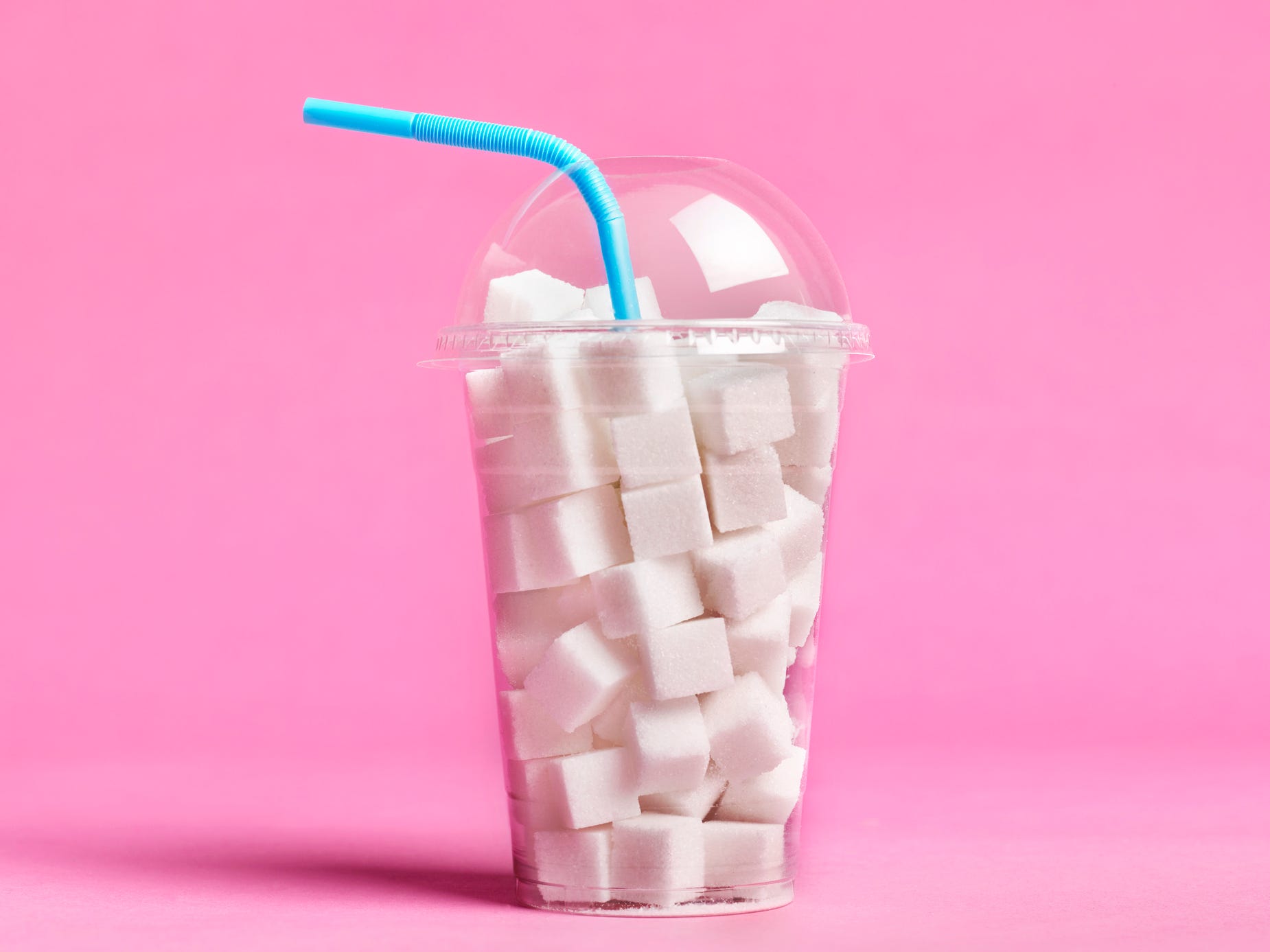
- Artificially sweetened drinks — such as diet sodas, juice, or coffees — are linked to the same risks for heart health as their sugary counterparts, according to a new study.
- Researchers found that people who consumed low- or no-calorie versions of sweet drinks were more likely to experience cardiovascular disease.
Cutting back on sugary beverages like sodas, juice, and syrupy coffees may do nothing for your heart health if you’re replacing them with artificially sweetened alternatives.
A new study found people who consumed drinks with low or no-calorie sweeteners such as aspartame, sucralose, and stevia had a higher risk of heart disease compared with people who did not drink sweetened beverages at all.
For the study, published today in the Journal of the American College of Cardiology, researchers looked at data from 104,760 participants in the NutriNet-Santé cohort, an ongoing online study in France in which participants record their dietary intake, physical activity, and health status at regular six-month intervals.
They found that participants who consumed sugary drinks had a higher risk of cardiovascular illness, which wasn’t a surprise, since sugar is linked to a host of health problems.
However, they also found that those who consumed diet versions of sweet drinks (containing substances like aspartame, stevia, and sucralose) had an equally high risk, compared to their peers who did not consume sweetened beverages at all.
"Our study suggests artificially sweetened beverages may not be a healthy substitute for sugar drinks, and these data provide additional arguments to fuel the current debate on taxes, labeling and regulation of sugary drinks and artificially sweetened beverages," lead researcher Eloi Chazelas, PhD student at the University of Paris North, said in a press release.
There are several limitations to this research. For one, it doesn't directly establish that artificial sweeteners increase heart disease risk. The research also didn't distinguish between different types of artificial sweeteners, which may not have the same effects.
Artificial sweeteners can increase appetite, disrupt digestion, and increase cravings for sweet foods
Extensive research shows artificial sweeteners are safe for consumption, according to the FDA, and surveys show more people now seem to prefer no-calorie sweeteners to regular sugar.
In moderation, they can be used to cut calories for people trying to lose weight. In some cases, artificial sweeteners may also be helpful for people with diabetes or prediabetes, according to Shamera Robinson, director of nutrition at the American Diabetes Association.
Consuming sugary beverages contributes significantly to the risk of developing type 2 diabetes, Robinson said in a presentation at the 2020 Food and Nutrition Conference & Expo. By contrast, artificial sweeteners do not.
But they're not considered healthy, according to experts, and may have some other risks.
There's some evidence that artificial sweeteners can increase appetite, disrupt digestion, and even prompt stronger cravings for sweet foods, Insider previously reported.
As a result, while diet soda and other beverages might sometimes be preferable to full-sugar counterparts for weight loss or diabetes management, the ideal substitute from a nutritionist's perspective is always water or other unsweetened drinks.
"The bottom line is, using sugar substitutes does not make an unhealthy choice healthy — rather, it makes such a choice less unhealthy," Robinson said.
Read more:
